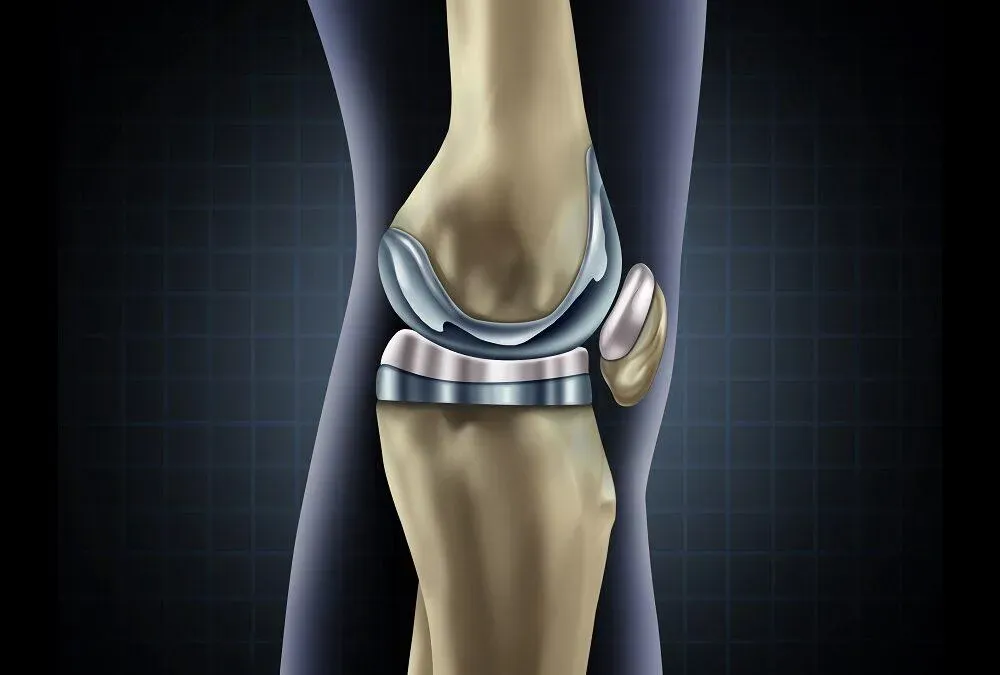When you need knee replacement surgery in Delhi, one of the essential decisions is choosing the correct material for your knee implants. Knee implant material are essential in how well your new knee will work and how long it will last. Your orthopedic doctor make the best choice for your needs based on your body needs. In this article, specially curated by orthopedic doctor at The Bone Clinic, you will learn the meaning of knee implants, various knee implant material, their benefits, and considerations to keep in mind when making this important decision.
What are knee implants?
An artificial knee joint consists of metal caps for the thigh bone and shinbone, as well as high-density plastic to replace destroyed cartilage. Each of these artificial pieces is known as a prosthesis. Knee replacement surgery replaces damaged or worn-out knee joints. Surgery can help relieve discomfort and improve knee function.
Various knee implant material
These are the different types of knee implant material:
Metal implants
Some implants are constructed of ceramics or ceramic/metal mixes, such as oxidised zirconium; these implants usually weigh between 420 and 550 grams. The metal elements of the implant are made of titanium- or cobalt-chromium-based alloys; the plastic sections are made of medical-grade polyethene.
Plastic implants
Because of their extreme durability, plastic implants can bear the strain and continuous movement of your knee joint without rapidly wearing down. It implies a longer lifespan for your knee implant. The smoothness of the plastic facilitates easy movement of the metal components of the knee implant against it. It lessens friction, allowing for more comfortable and natural knee movement. Between the metal components of the implant, polyethene serves as a cushion to absorb shocks and lessen the impact on your knee. It facilitates more painless and fluid movements. The body can safely handle this plastic, and allergic reactions are uncommon. Its design allows it to function nicely with the tissues in your body.
Ceramic implants
Ceramics are incredibly durable and wear-resistant. It is important for the implant’s durability because it implies it can withstand damage for an extended period. The extremely smooth surface of ceramic materials aids in lowering friction in the knee joint. It facilitates and improves mobility. In general, they work quite well with the human body. Compared to certain metals, they are less likely to trigger allergic reactions or be rejected by the body. Despite their incredible strength, they weigh very little. It may contribute to the knee implant’s overall weight reduction, improving patient comfort.
Things to take into account while selecting the ideal joint replacement for you
- Age and Activity Level: Younger, more active people might need a different type of implant compared to older, less active individuals. Your lifestyle and how much you plan to use the joint can influence the best choice for you.
- Overall Health: Your general health, including any medical conditions, can affect which implant is safest and most effective. For example, certain materials might be better if you have allergies or sensitivities.
- Type of Joint: Different joints, like knees, hips, or shoulders, have different implant options. The type of joint you’re replacing will determine the available choices and what might work best.
- Material Preferences: Implants can be made from metals, ceramics, or plastics. Each material has its pros and cons. Your surgeon can help explain which material might be best based on your specific situation.
- Durability and Longevity: It is known that certain implant designs and materials have a longer lifespan than others. A long-lasting joint replacement is something you should take into account.
- Surgeon’s expertise: Your joint replacement procedure may be successful or unsuccessful depending on your surgeon’s expertise and proficiency with various implant kinds. Selecting a surgeon with competence in the kind of implant you require is essential.
- Recovery Time: Recovery timeframes can differ depending on the kind of implants used and the surgical methods used. It can be helpful to plan and control your expectations if you know what to anticipate from your recovery.
- Cost and Insurance Coverage: You may also make a selection based on the implant’s cost and the extent of your insurance. Certain implant kinds or materials may be more costly, or insurance may not cover all the expenses.
- Personal Preferences and Lifestyle: It’s also necessary to consider your lifestyle choices and personal preferences. Your surgeon can assist you in choosing the finest joint replacement by learning about your goals, interests, and daily routine.
Which implant is the best for your knees?
Here is how you can decide which implant is the best for you.
- Metal on plastic: The most popular kind is metal on plastic. It mixes a plastic component (made of ultra-high-molecular-weight polyethene) with a metal component (often composed of strong alloys like cobalt-chromium or titanium). This combination offers good movement, smoothness, and durability.
- Ceramic on Plastic: Due to their extreme hardness and smoothness, ceramics can lessen wear and facilitate easy knee movement. Additionally, they are biocompatible, which means that they interact with your body nicely and are less prone to trigger problems.
- Completely Ceramic: Ceramic is used in both portions of these implants, providing the least amount of wear and the smoothest movement. They can be more costly and brittle, though.
- Metal on Metal: Less frequent these days because of worries about metal ions seeping into the body.
The ideal knee implant material for you will vary based on age, degree of activity, body requirements. Talking with knee replacement surgeon about these aspects assist in selecting the implant that will yield the results from your knee replacement.




